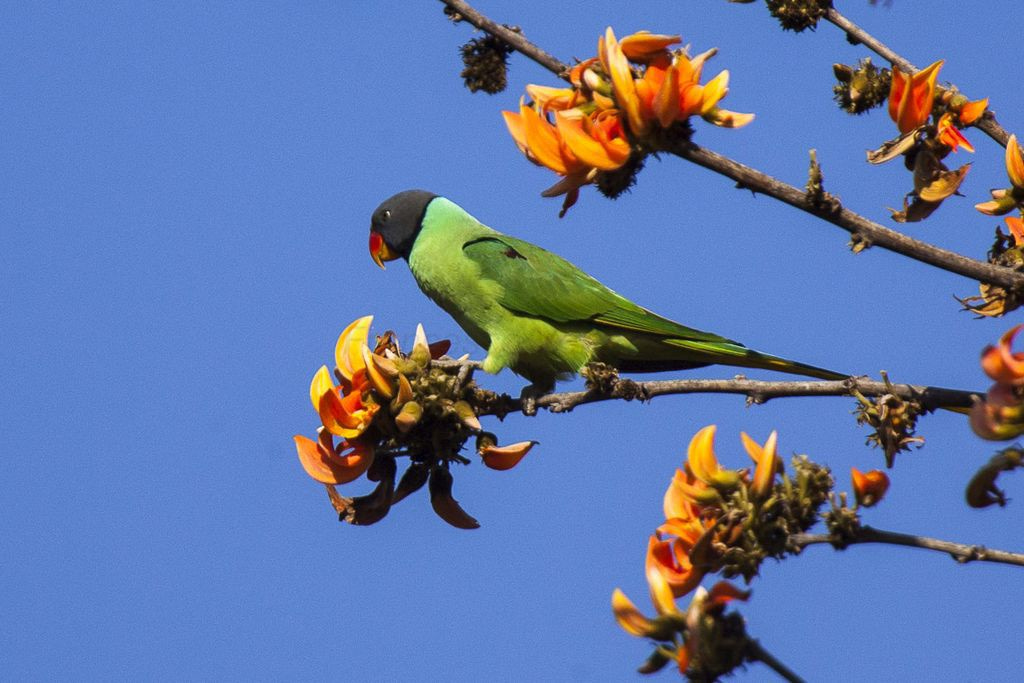A Selfless Parrot and this "Pyrocene" Age
A parable about a fire-dousing bird in the Himalayas holds lessons for humans in this “Pyrocene” century

A friend and Earth Institute alum, Brighton Kaoma, posted a Buddhist parable on Facebook that prompted me to think about the firefighters and citizen volunteers who’ve spent months trying to protect communities, and species, threatened by the massive wildfires in Australia [not to mention those around North America and Europe].
In a thicket at the foot of the Himalayan mountains there once lived a parrot together with many other animals and birds. One day a fire started in the thicket from the friction of bamboos in a strong wind and the birds and animals were in frightened confusion.
The Parrot, feeling compassion for their fright and suffering, and wishing to repay the kindness he had received in the bamboo thicket where he could shelter himself, tried to do all he could to save them. He dipped himself in a pond nearby and flew over the fire and shook off the drops of water to extinguish the fire. He repeated this diligently with a heart of compassion out of gratitude for the thicket.
This spirit of kindness and self-sacrifice was noticed by a heavenly god who came down from the sky and said to the parrot: “You have a gallant mind, but what good do you expect to accomplish by a few drops of water against this great fire?”
The parrot answered: “There is nothing that can’t be accomplished by the spirit of gratitude and self-sacrifice. I will try over and over again and then over in the next life.”
The great god was impressed by the parrot’s spirit and together they extinguished the fire.
There’ll be ever more need for sustained selflessness on this planet if there is to be a smooth path through this fast-forward century. This is, after all, the Pyrocene, to use the apt term for this moment in history coined by the environmental historian Stephen J. Pyne of Arizona State.
This is nowhere more true than in places where rapid settlement has occurred in zones of deep wildfire hazard in Australia, the western United States, Greece, Portugal and other parts of Europe — particularly with the rising odds of hot, dry fire-friendly spells with human-driven global warming.




